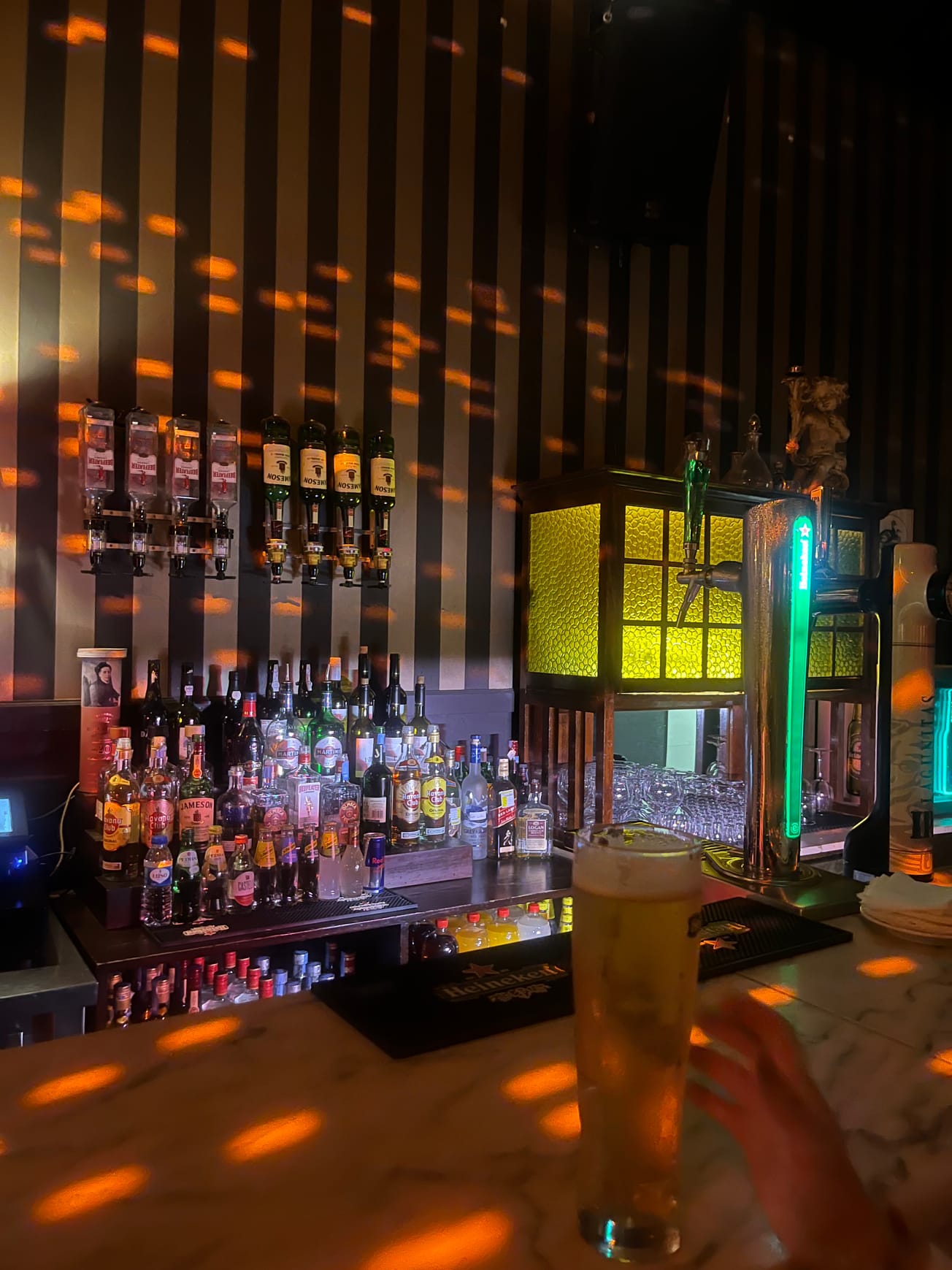By Orla Ruane, First Year, English Literature
It’s undeniable that, for many, drinking culture goes hand in hand with university life. Whether it’s going to the pub with friends or a society social, it is not uncommon to find yourself with a drink in hand after a long day of lectures. However, it’s these nights out that fill many, particularly female students, with anxious anticipation. It’s almost second nature to have your hand clenched covering your drink, and with the recent reports of needle spikings on the Clifton Triangle, this anxiety is on the rise for Bristol students. The helpless feeling already present on a night out is amplified by this very real threat.
In recent months, police have received reports of four needle spikings on the Clifton Triangle, with students later discovering bruises on their arms and legs around the injection site. While more often than not, it is easier to foster an ‘it hasn’t happened to me and therefore won’t happen to me’ mindset, the reality is that in 2023 2.2% of UK adults reported having their drinks spiked in the 12 months leading up to the survey, which equates to around 1.2m UK adults.
'Not going out isn’t really an option, but the paranoia on a night out is constant.’
In addition to this, the conviction rate for such an offense is staggeringly low, as figures obtained by the BBC suggest that while there were nearly 5,000 reports of spiking-related incidents to forces in 2021/22, there were just 40 convictions in four years. The alarming reality of such a low conviction rate is that it discourages victims from coming forward. Speaking to Epigram, one first-year student explained that ‘going through the motions of reporting a spiking and attempting to gain justice almost seems pointless when so few incidents are convicted’.
Ultimately, the unpredictability of spiking incidents and the low conviction rate can leave students feeling powerless. Although popular Bristol events company ‘Fishies’ has now implemented stricter measures, informing students through text that venues will be doing bag searches, pat down searches, and have searching wands in use with Ucard and ID required, the heightened anxiety has resulted in Bristol’s Dance Society releasing a statement on Instagram that they will ‘not be attending clubbing socials for the foreseeable.’

The society explained that ‘although Daisy’s recently promoted that they would be adding extra precautions on entry… these were not being carried out.’ This lingering uncertainty adds another layer of complexity to nights out for female students. As one first-year student shared, ‘Not going out isn’t really an option, but the paranoia on a night out is constant.’ During the ‘golden university years’ students should not feel endangered by going out at night, yet the reality is that many are anxious to take the risk.
In addition, this raises the question of whether the current safety precautions in place are truly effective. One such initiative is the ‘Ask for Angela’ scheme, widely promoted in pubs and clubs through posters displayed on the backs of female toilet doors. The scheme encourages individuals to discreetly seek help by asking for ‘Angela’ at the bar - a code that staff are trained to recognize as a signal that someone feels unsafe or is in danger. However, an investigation conducted by the BBC found that more than half of the venues, when tested, ‘did not respond appropriately when guests used the “Angela” code word.’ The inability of venues to recognise those who are vulnerable consequently ‘leaves customers with a false sense of security, which as women’s safety campaigners have argued can be dangerous.’
To investigate this issue further, Epigram spoke to one second-year student, who explained that she has ‘never used the “Angela” scheme, [...] I don’t have faith that the bar staff would actually be able to help me.’ The inadequate security at venues catering to student nights leading to instances of needle spiking, combined with a general lack of awareness about safety schemes, has contributed to heightened anxiety among female students in Bristol.
Student gambling: the invisible cards on the table
Degree or digital fame: Why some students are betting on becoming influencers
Outside of being spiked, the dangers posed to women on a night out are significant. Ensuring safety on nights out remains a complex issue, particularly for female students who often take extra precautions to protect themselves. Significantly, one crucial step for improving security for future women is through increased reporting levels. Although it may seem futile, underreporting can lead to inaccurate statistics, potentially underestimating the true prevalence of spiking. An increase in the accuracy of statistics will illustrate the danger posed to women, which in turn could lead to improved safety measures and a higher number of convictions.
However, addressing these challenges requires not only improved reporting and enforcement but also a greater commitment from venues, authorities, and society to prioritise student safety.
Featured Image: Epigram / Daisy Yates
What more could be done to reduce the anxiety many female students feel when going out?
If you have any concerns about nightlife safety, please see the resources below:
Bristol Nights: A city-wide initiative focused on improving safety, inclusivity, and well-being for people in Bristol's nightlife, offering resources and support for a safer night out.
Strut Safe: Volunteer-operated service providing phone support to anyone traveling alone, offering reassurance and safety until they reach their destination.
Hollaback!: A global organization addressing harassment, offering support and resources to prevent street harassment.








